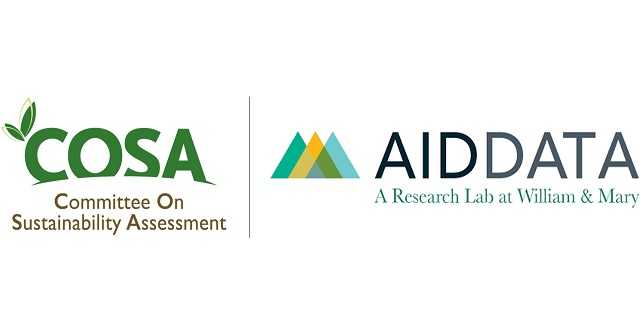PHILADELPHIA, USA – The world is facing a dire environmental challenge, losing nearly 14 million hectares of forest annually —an area comparable to Greece: this deforestation is largely driven by market pressures to clear forests for agricultural expansion, fueling global commodity supply chains. In response, the European Union introduced the Deforestation Regulation (EUDR), of which implementation is set to begin in December 2024 for large-scale businesses, and mid-2025 for small-scale enterprises.
The European Commission said, it would propose delaying implementation of a law banning the import of commodities linked to deforestation by a year on Wednesday, October 2nd, following calls from industries and governments around the world.
This regulation mandates that buyers of commodities such as coffee, palm oil, rubber, wood, soy, and beef prove their products are not derived from deforested land.
Leading the Charge: AidData and COSA’s Groundbreaking Research
Thanks to generous support of the Gates Foundation, AidData and The Committee on Sustainability Assessment (COSA) are embarking on a one-year study to assess the measurement effectiveness and cost efficiency of digital tools used by coffee producers, traders, and government bodies to ensure EUDR compliance.
Key Objectives and Impact
The research aims to:
- Evaluate Accuracy and Cost-Effectiveness: Analyze various digital solutions, including satellite-based verification methods, to determine the most reliable and cost-efficient approaches for monitoring deforestation.
- Address Unintended Consequences: Explore potential challenges and impacts on small-scale coffee producers and identify opportunities for additional income.
- Enhance Compliance Practices: Provide practical insights and recommendations to optimize compliance efforts and support coffee producers in meeting EUDR requirements.
Global Collaboration and Practical Solutions
COSA, known for its expertise measuring sustainability in agriculture, and AidData, renowned in geospatial research and evaluation and remote sensing, are collaborating with regional partners, including Promecafe and GIZ, to build a global learning community around EUDR compliance. The study will first focus on Honduras—a major coffee exporter—and extend to Ethiopia, highlighting the need for scalable and adaptable compliance strategies.
Dr. Ariel BenYishay, AidData’s Chief Economist, emphasizes, “Our goal is to develop a benchmark using the best available data options and compare different data sources to determine the most effective methods for EUDR compliance.”
COSA’s CEO, Liam Brody, adds, “Together with AidData, COSA will analyze the accuracy, cost-effectiveness, and data sovereignty of leading EUDR digital solutions. We aim to explore unintended consequences, particularly for small-scale farmers, and identify new opportunities for income generation. Our research will provide valuable insights for coffee farmers and buyers navigating the complexities of EUDR compliance.”
Dr. Elena Serfilippi, COSA’s Research Director, notes, “To verify that the plots from Early Action Initiative (EAI) participants aren’t drastically different from other farms, we will also study data on a sample of 1,500 plots across Honduras using the coffee registry of the EAIs as well as IHCAFE. Our goal is to be as inclusive as possible and understand which approaches to EUDR compliance are the most realistic for coffee growers.”
Looking Ahead
While this regulation technically only impacts products being sold in European markets, it is having a systemic impact on how a range of agricultural products are now traded anywhere in the world—especially with many brands committing to buy EUDR-compliant products regardless of the final market. Research will culminate in a comprehensive report to be published in mid-2025, providing coffee cooperatives and producers with actionable insights. The findings will be shared with networks in the U.S., Central America, and beyond, offering a clear understanding of costs, trade-offs, and best practices for deforestation compliance.
Seth Goodman, a Research Scientist at AidData, concludes, “We aim to deliver practical solutions that help smallholder farms stay competitive and compliant with regulations impacting their livelihoods. This research will offer real insights into the most effective and cost-efficient methods for deforestation monitoring.”
About COSA
The Committee on Sustainability Assessment (COSA) is a non-profit organization dedicated to measuring sustainability in agriculture and guiding businesses on sustainable sourcing practices.
About AidData
Housed at William & Mary’s Global Research Institute, AidData is an international development research lab that connects decision-makers and researchers who have a shared interest in working together using granular data and innovative tools to solve pressing problems, precisely target resources, and use rigorous evidence to measure the impacts—intended and unintended—of policies and investments.















